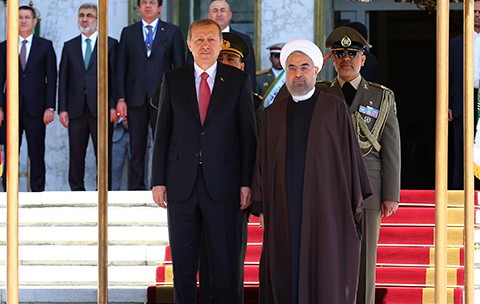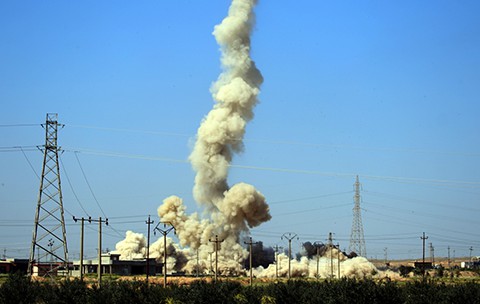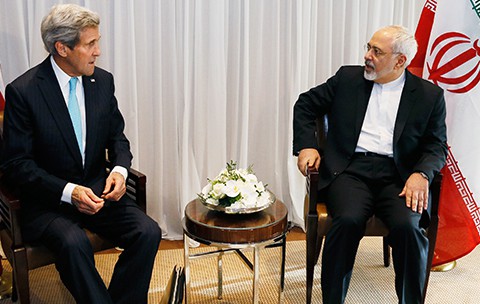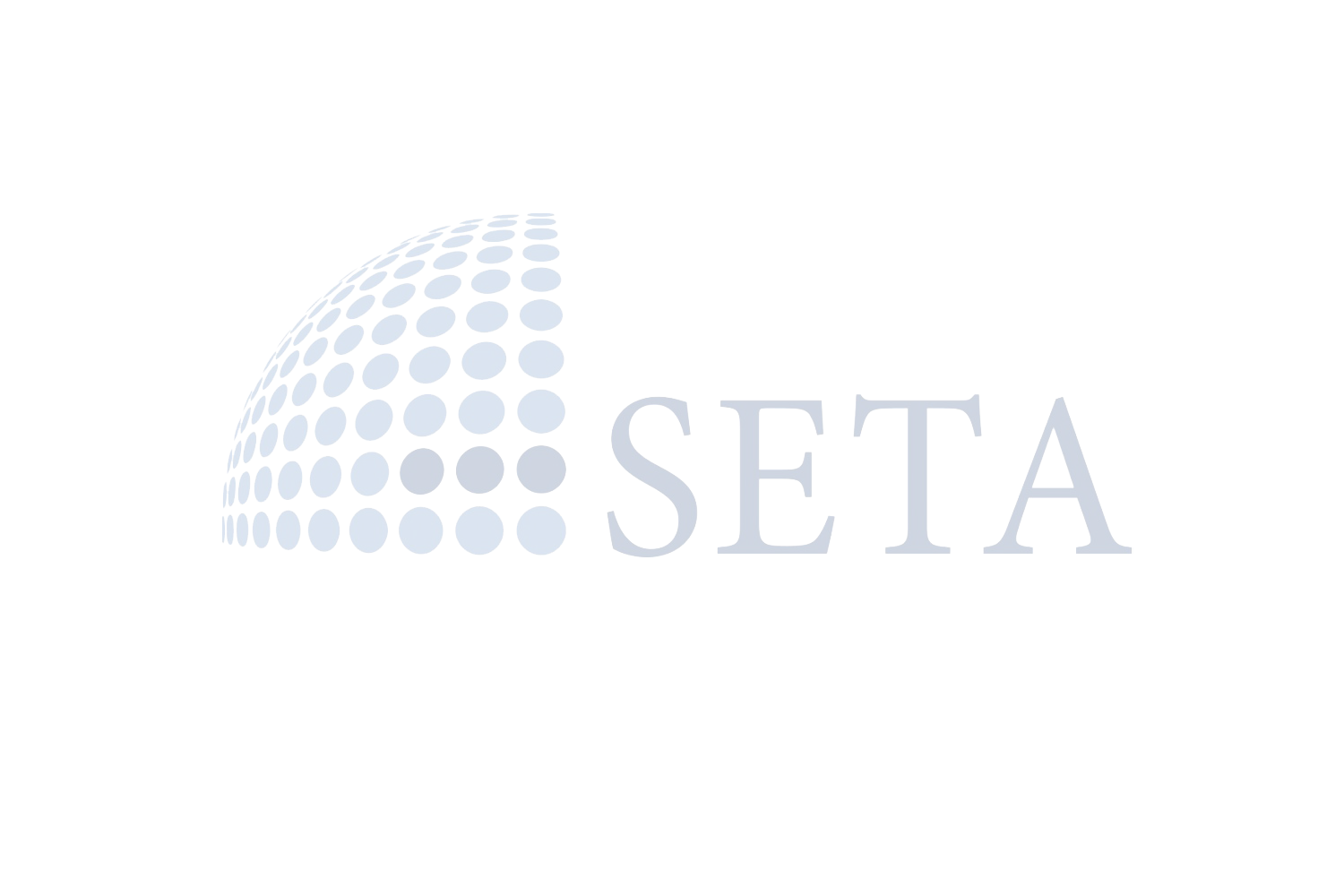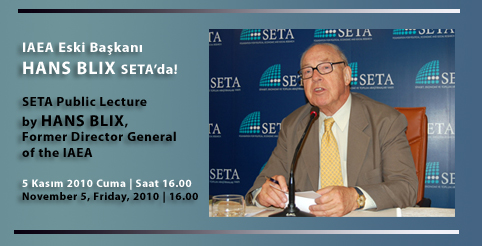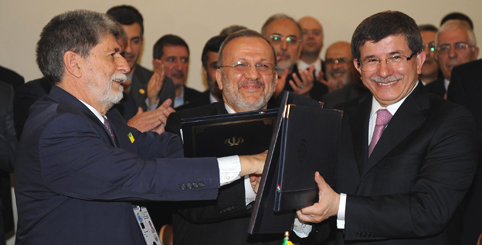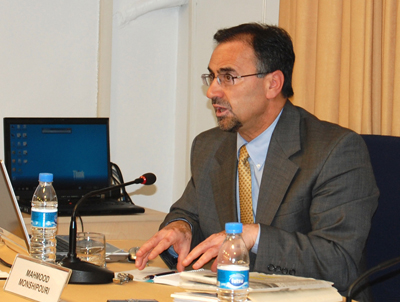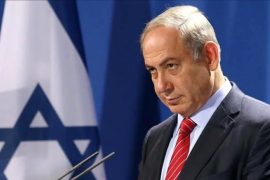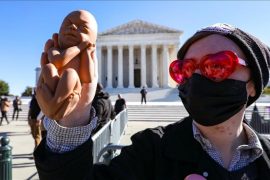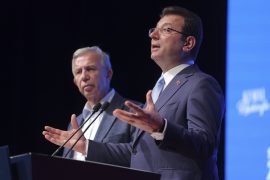Nuclear
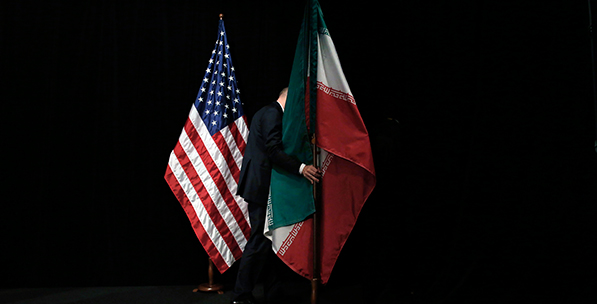
Iran deal and its impact on the US and the Middle East
| Foreign PolicyThe success of the Obama administration with its deal with Iran will not only be judged by its contribution to non-proliferation but also on its impact on Iranian policies in the Middle East.
-
Foreign Policy
Turkey and Iran: Competitive Collaboration
The timing of the critical visit by President Recep Tayyip Erdoğan to Tehran this week corresponded with a very sensitive regional and international conjuncture.
-
Foreign Policy
Conflict In Yemen and Nuclear Negotiations
By Kılıç Buğra KanatTension has been escalating in Yemen since U.S. forces withdrew from the region. Now, as Iran extends its support to Shiite militants and the Saudi-led coalition conducts airstrikes on strategic positions, the situation is getting out of control in the country.
-
Foreign Policy
Potential Nuclear Deal With Iran
By Kılıç Buğra KanatTo reach an agreement with Iran has been one of the main foreign policy goals of the Obama administration and its attainment will mark a major instance in the foreign policy of the U.S.
Bu Konuda Daha Fazla
-
Nuclear Negotiations and Iran’s Growing Influence
By Burhanettin DuranIf anyone actually thought that the Arab revolts, the most recent wave of change in the Middle East, would allow Iran and Israel to put pressure on the region, though, time has proved them wrong.
-
Nuclear Disarmament and Nuclear Power
Mr. Blix addressed the present challenges and opportunities on the way toward nuclear disarmament and peace in the world in general, in the Middle East in particular.
-
Multilateralism in Foreign Policy and Nuclear Deal
By Taha ÖzhanSince September 11, 2001, America's foreign policy and the future of the global system have occupied a central place in current international affairs debates. The neocon arguments became increasingly influential during the last years of the Clinton administration and found resonance in the Bush administration. In the aftermath of the 9/11 events, both the ideological arguments and the excuses were in place for the realization of the neocon project. This period witnessed the deterioration of already weakened international institutions and the "global order." The end results were, among other things, the invasions of Iraq and Afghanistan as well as the tacit support for the Israeli attacks on Lebanon and Gaza. The overall political cost of all these policies was roundly criticized by many and analyzed as the paramount example of American "unilateralism."
-
Iran’s Nuclear Program: Contending Perspectives
SETA PANEL DISCUSSION Chair: Taha Özhan, SETA Panelists: Bülent Aras, SETA & İTÜ Mahmood Monshipouri, San Francisco State University Date: March 22, 2010 Monday Time: 11.00 – 12.30 Venue: SETA Foundation, Ankara
-
Iran’s Nuclear Ambitions and Turkey
By Hakkı UygurIranian nuclear issue has serious implications for regional and international security and as such requires a comprehensive analysis of the Iranian domestic power structure, foreign policy decision making process and nuclear diplomacy.
